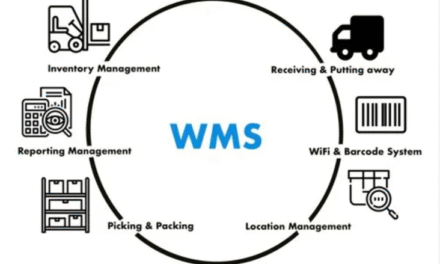Preconception care involves preparing your body for pregnancy through medical check-ups, a healthy diet, regular exercise, and lifestyle changes. It reduces risks, enhances fertility, and ensures a healthy start for your baby. Taking proactive steps can lead to a smoother and safer pregnancy journey.
Planning to start a family is an exciting and life-changing decision. While much focus is often placed on the pregnancy itself, the journey begins well before conception. Preconception care is a crucial step in ensuring a healthy pregnancy and a safe delivery. Consulting experts like the best gynaecologists in Mumbai, including Dr. Himani Sharma, can guide you in preparing your body for this transformative experience.
This comprehensive guide delves into the importance of preconception care, practical tips, and expert recommendations to help you embark on a healthy pregnancy journey.
What is Preconception Care?
Preconception care involves the steps you take before becoming pregnant to optimise your health and reduce potential risks to both you and your baby. It includes medical consultations, lifestyle changes, and nutritional adjustments that create a healthy environment for conception and fetal development.
Why is Preconception Care Important?
- Ensures a Healthy Start for the Baby:Your health before pregnancy directly impacts your baby’s development.
- Reduces Risk of Complications:Conditions like diabetes or hypertension can affect pregnancy but can be managed with proper care.
- Improves Fertility:A healthy lifestyle and diet can improve your chances of conception.
- Prepares Your Body:It readies your body to handle the physical demands of pregnancy.
Steps to Prepare Your Body for Pregnancy
1. Schedule a Preconception Check-Up
The first step in preconception care is consulting a trusted gynaecologist. The best gynaecologists in Mumbai, such as Dr Himani Sharma, will conduct a thorough evaluation to assess your health. This check-up typically includes:
- Review your medical and family history.
- Screening for genetic conditions.
- Evaluating existing health conditions like thyroid disorders or PCOS.
- Ensuring your vaccinations are up-to-date.
2. Start Taking Prenatal Vitamins
Folic acid is essential for preventing neural tube defects in babies. Begin taking a prenatal vitamin with at least 400 micrograms of folic acid three months before trying to conceive. Your doctor may also recommend supplements for iron, calcium, and Vitamin D.
3. Maintain a Balanced Diet
A nutrient-rich diet is vital for preparing your body for pregnancy. Focus on:
- Fruits and Vegetables:Packed with vitamins and antioxidants.
- Whole Grains:Provide sustained energy and fiber.
- Protein Sources:Include lean meats, beans, eggs, and nuts.
- Healthy Fats:Avocados, nuts, and fish support hormonal balance.
- Limit processed foods, caffeine, and sugar to promote optimal health.
4. Achieve a Healthy Weight
Being overweight or underweight can affect fertility and increase pregnancy risks. Work with a healthcare provider to achieve a healthy weight through a combination of diet and exercise.
5. Quit Unhealthy Habits
- Smoking:Smoking affects fertility and increases the risk of miscarriage and birth defects.
- Alcohol:Stop consuming alcohol, as it can interfere with conception and harm fetal development.
- Recreational Drugs:Avoid all recreational drugs for a safe pregnancy journey.
6. Manage Stress Levels
Chronic stress can disrupt hormonal balance and ovulation. Practice stress-relief techniques like yoga, meditation, or deep breathing exercises to maintain emotional well-being.
7. Track Your Menstrual Cycle
Understanding your ovulation cycle helps pinpoint your fertile window, increasing your chances of conception. Use ovulation tracking apps or consult your doctor for guidance.
8. Get Active
Regular physical activity not only helps maintain a healthy weight but also improves circulation and energy levels. Aim for 30 minutes of moderate exercise five days a week, such as walking, swimming, or yoga.
9. Review Medications
Certain medications can affect fertility or harm a developing fetus. Share your current prescriptions with your doctor to determine if any need to be adjusted.
Common Tests and Screenings in Preconception Care
- Blood Tests:To check for anaemia, diabetes, and thyroid function.
- Genetic Screening:To identify risks of inherited conditions.
- Infection Screening:Tests for STDs and other infections that could impact pregnancy.
- Ultrasound:To assess uterine health and detect any abnormalities.
Role of Your Partner in Preconception Care
Your partner’s health is equally important in ensuring a successful conception. Encourage them to:
- Maintain a healthy lifestyle.
- Avoid smoking and excessive alcohol consumption.
- Eat a balanced diet and take necessary supplements like zinc and Vitamin C.
- Get tested for infections or genetic conditions.
When to Consult a Gynaecologist?
Seek expert guidance if you’ve been trying to conceive for over a year (or six months if you’re over 35) without success. Consulting specialists like the best gynaecologists in Mumbai, including Dr Himani Sharma, ensure timely diagnosis and effective treatment for any underlying issues.
Preconception Care and Mental Health
Mental health plays a crucial role in conception and pregnancy. Anxiety, depression, or unresolved trauma can affect hormonal balance and fertility. Seek support from a counsellor or therapist if needed, and prioritise self-care practices.
Conclusion
Preconception care is a vital step in preparing your body for pregnancy and ensuring a healthy future for your baby. From medical check-ups and balanced nutrition to lifestyle changes and stress management, every step contributes to a smoother path to parenthood. In some cases, reproductive or urinary health concerns may also play a role in conception—so consulting the top urologist in Pune alongside your gynecologist can provide a more holistic approach to planning your pregnancy.
By consulting experts like the best gynaecologists in Mumbai, such as Dr. Himani Sharma, you can receive personalised advice and care tailored to your needs. Take charge of your health today to create the best possible foundation for your growing family.
References
https://www.acog.org/womens-health/faqs/good-health-before-pregnancy-prepregnancy-care
https://www.hopkinsmedicine.org/health/wellness-and-prevention/planning-a-pregnancy
https://www.healthline.com/health/pregnancy/how-to-prepare-your-body#week-1





